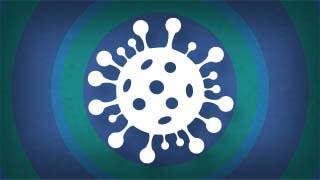This research was completed on
How are children’s lives affected now?
More than 700,000 babies are born in the UK each year1. Women who are infected with SARS-CoV-2 during pregnancy may unavoidably expose their unborn baby to the virus and virus-related inflammation – and some babies may catch the virus shortly after birth.
“We currently don’t know enough about the consequences of this exposure in early life,” says Dr Chakkarapani.
Thankfully, most newborn babies infected with SARS-CoV-2 usually have mild or no symptoms. But it is known that COVID-19 can sometimes cause brain complications in adults – raising the possibility of hidden effects from exposure to the virus in early life, or to its effects in the womb, on a child’s developing brain.
“Damage to the brain is especially concerning for very young babies as it could impact on their development,” says Dr Chakkarapani. “We urgently need to monitor children as they grow to find out if and how the virus affects their development in the longer term.”
How could this research help?
“We aim to gain a better understanding of how exposure to SARS-CoV-2 early in life affects a child’s brain development,” says Dr Chakkarapani.
The SINEPOST study will assess children at 18 months of age – comparing those exposed to the virus in the womb, or shortly after birth, with children who were not.
“We will look for any early signs of developmental delay in exposed babies – and identify children who may be at increased risk of behavioural or emotional problems in the future,” says Dr Chakkarapani.
The team will ask for permission to follow up the babies later in childhood – to enable future studies into their long-term development and mental health.
This study could help shape advice for pregnant women and new parents – and identify children who may need additional checks and support. The results could also stimulate research into new treatments to help reduce the long-term impact of COVID-19 on children’s lives.
- Office for National Statistics, Vital statistics in the UK: births, deaths and marriages https://www.ons.gov.uk/peoplepopulationandcommunity/populationandmigration/populationestimates/datasets/vitalstatisticspopulationandhealthreferencetables [website accessed 4th February 2021]
Research table
Project details
| Project Leader | Dr Ela Chakkarapani, MBBS FRCH MD FHEA |
| Location | Translational Health Sciences, Bristol Medical School, St Michael’s Hospital, University of Bristol |
| Project Team |
Professor Jenny J Kurinczuk BSc(Hons) MBChB MSc MD FFAPHM FFPH FRCOG
Professor Samantha J Johnson, BSc Hons PhD CPsychol AFBPsS Dr Chris Gale, MRCPCH MBBS MSc PhD Professor Marian Knight, BA(Hons) MBChB MA MPH PhD FFPH FRCPE FRC Dr Rosie P Cornish, MSc PhD |
| Other Locations |
National Perinatal Epidemiology Unit (NPEU), Nuffield Department of Population Health, University of Oxford
Department of Health Sciences, University of Leicester Department of Neonatal Medicine, Chelsea and Westminster Hospital campus, Imperial College London Translational Health Sciences, Bristol Medical School, St Michael’s Hospital, University of Bristol |
| Grant Awarded | |
| Grant Amount | £151,287 |
| Start Date | |
| End Date | |
| Duration | 18 months |
| Grant Code (GN number) | GN2905 |

